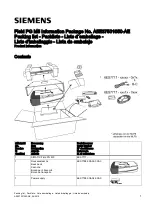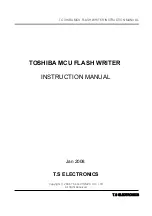
18
Super X11DPT-L User's Manual
System Resource Alert
This feature is available when used with SuperDoctor
®
5. SuperDoctor
®
5 is used to notify the
user of certain system events. For example, you can configure SuperDoctor
®
5 to provide you
with warnings when the system temperature, CPU temperatures, voltages and fan speeds
go beyond a predefined range.
1.5 ACPI Features
ACPI stands for Advanced Configuration and Power Interface. The ACPI specification defines
a flexible and abstract hardware interface that provides a standard way to integrate power
management features throughout a computer system including its hardware, operating system
and application software. This enables the system to automatically turn on and off peripherals
such as network cards, hard disk drives and printers.
In addition to enabling operating system-directed power management, ACPI also provides a
generic system event mechanism for Plug and Play and an operating system-independent
interface for configuration control. ACPI leverages the Plug and Play BIOS data structures
while providing a processor architecture-independent implementation that is compatible with
appropriate Windows operating systems. For detailed information on OS support, please refer
to our website at
.
1.6 Power Supply
As with all computer products, a stable power source is necessary for proper and reliable
operation. It is even more important for processors that have high CPU clock rates. In areas
where noisy power transmission is present.
1.7 Advanced Power Management
The following new advanced power management features are supported by the motherboard.
Intel
®
Intelligent Power Node Manager (IPNM)
Intel's Intelligent Power Node Manager (IPNM) provides your system with real-time thermal
control and power management for maximum energy efficiency. Although IPNM Specification
Version 2.0/3.0 is supported by the BMC (Baseboard Management Controller), your system
must also have IPNM-compatible Management Engine (ME) firmware installed to use this
feature.
Note:
Support for IPNM 2.0/3.0 support is dependent on the power supply used in
the system.
















































